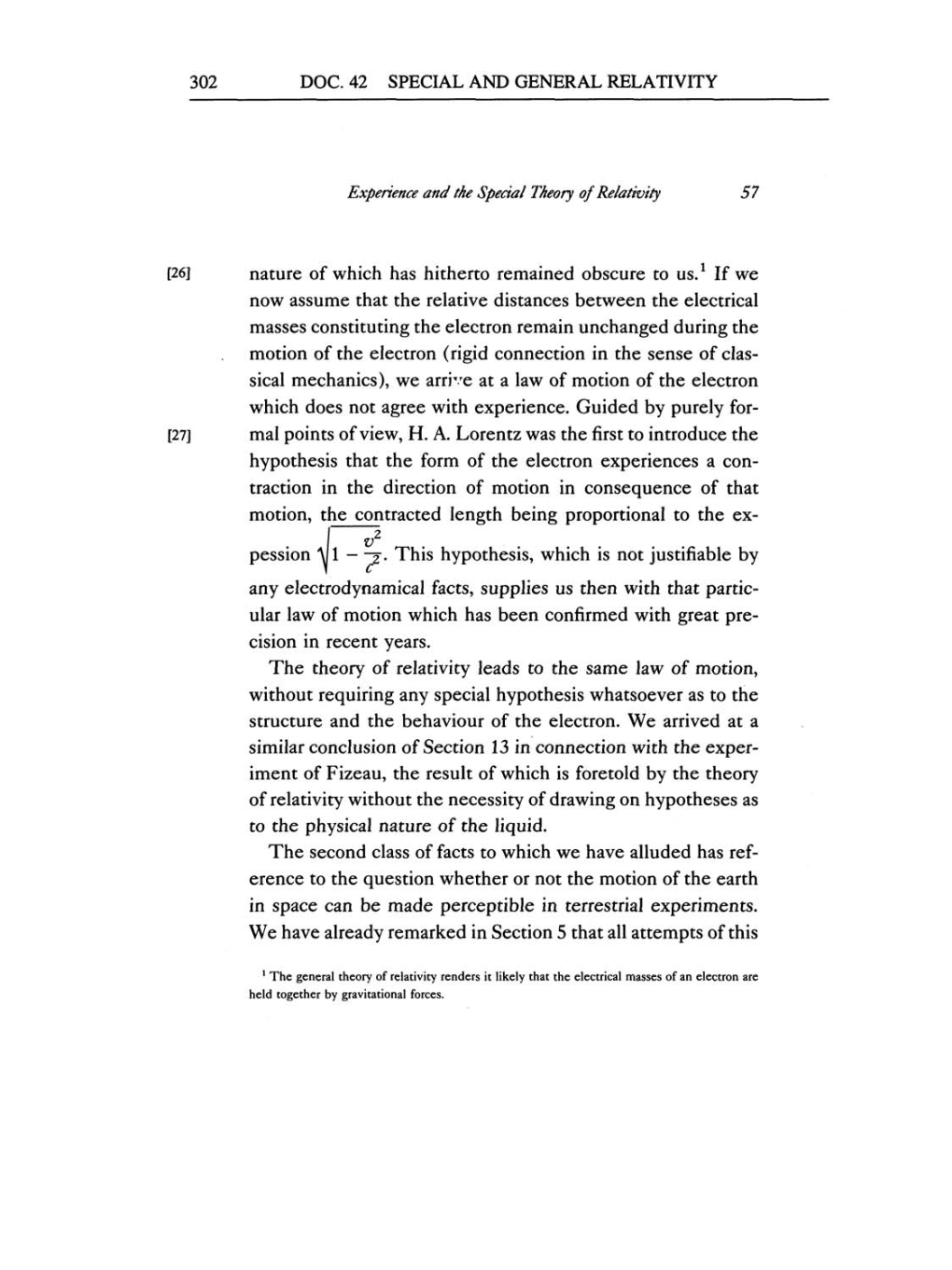302 DOC. 42 SPECIAL AND GENERAL RELATIVITY
Experience
and
the
Special
Theory
of
Relativity
57
[26]
nature
of
which
has
hitherto
remained obscure
to
us.1
If
we
now
assume
that the
relative distances between the electrical
masses
constituting
the electron remain
unchanged during
the
motion
of
the electron
(rigid
connection
in
the
sense
of
clas-
sical mechanics),
we
arrive
at
a
law
of motion of the electron
which does
not agree
with
experience.
Guided
by
purely
for-
mal
points
of
view,
H.
A.
Lorentz
was
the
first
to
introduce the
[27]
hypothesis
that
the
form
of the
electron
experiences
a con-
traction in the direction of motion
in
consequence
of
that
motion,
the contracted
length being proportional to
the
ex-
pession
V1
- v2/v2.
This
hypothesis,
which
is
not justifiable by
any electrodynamical facts, supplies
us
then
with
that
partic-
ular
law
of motion which
has
been confirmed with
great pre-
cision
in
recent
years.
The
theory
of
relativity
leads
to
the
same
law
of
motion,
without
requiring any special hypothesis
whatsoever
as
to
the
structure
and the behaviour of the electron. We arrived
at
a
similar conclusion of Section
13
in connection with the
exper-
iment
of
Fizeau,
the
result
of
which
is
foretold
by
the
theory
of
relativity
without the
necessity
of
drawing
on
hypotheses
as
to
the
physical nature
of
the
liquid.
The
second
class
of
facts
to
which
we
have alluded
has ref-
erence
to
the
question
whether
or
not
the motion of the earth
in
space
can
be made
perceptible
in
terrestrial
experiments.
We have
already
remarked
in
Section
5
that
all
attempts
of
this
1
The
general theory
of
relativity
renders it
likely
that
the electrical
masses
of
an
electron
are
held
together
by
gravitational forces.
